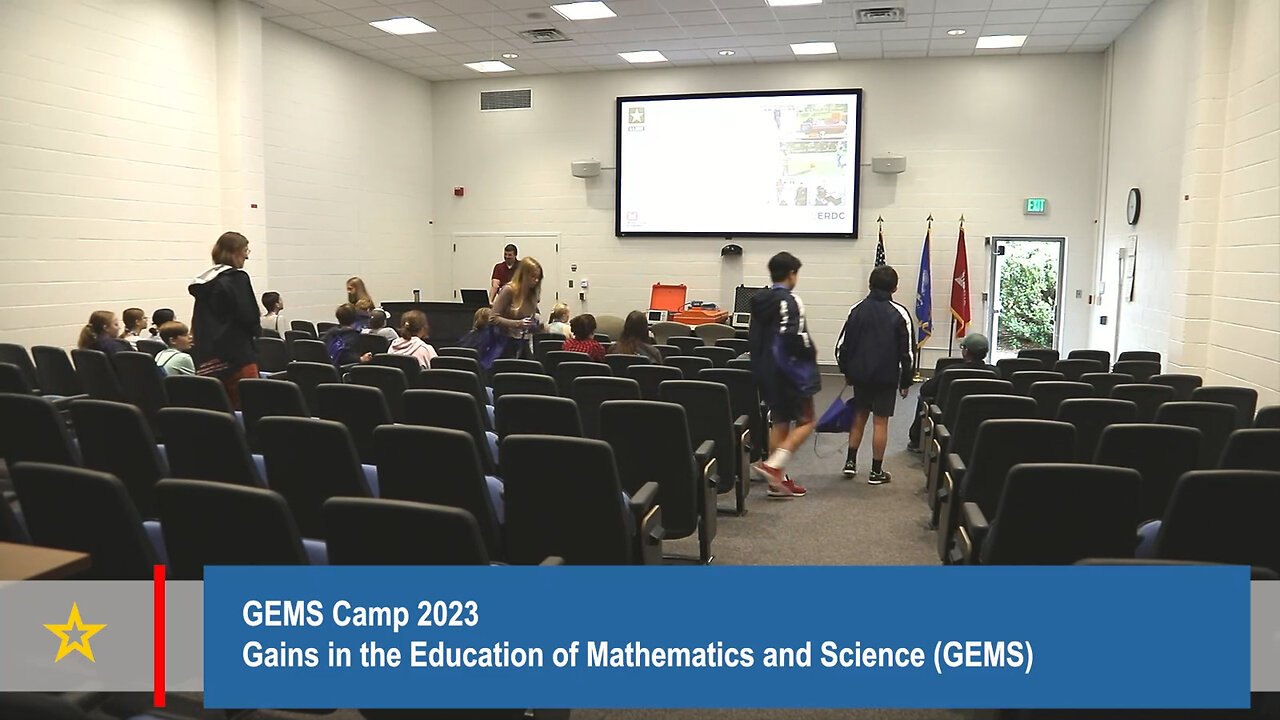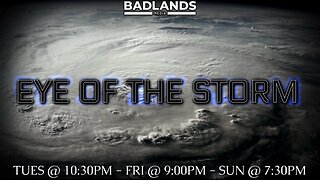Premium Only Content

GEMS Camp
Credit: Joseph Bara | Date Taken: 08/07/2023
Gains in the Education of Mathematics and Science (GEMS) CRREL conducted its first on-site Gains in the Education of Mathematics and Science (GEMS) Summer Camp Program in the week of June 26 – 30, 2023, entitled Exploring Weather, Climate, and the Environment. This event was provided to 7th and 8th grade students participating from New Hampshire, Vermont, Massachusetts, North Carolina, and New York who have a great interest in science and technology. CRREL provided twelve Science and Engineering (S&E) experts to execute a full week of activity, including ten modules, practical skills and interaction with science tools and equipment, and presentations from each team of participants. The GEMS Camp Program serves to provide students with hands-on activities and team building skills while having fun learning about science and technology. Soil not Dirt Soil is a great habitat for living organisms. Some of the organisms are so small that you can’t even see them. Come learn how to make batteries out of soil! We will make terrestrial microbial fuel cells, measure how much power they produce, understand how water affects them, and grow some of the soil organisms that are doing the job. This module is appropriate for any student who likes hands on experience in the laboratory. Ground Penetrating Radar Ground Penetrating Radar (GPR) is a non-destructive geophysical technique used to image the subsurface. GPR transmits electromagnetic waves into the subsurface, which reflect off features as electrical properties of the subsurface change. GEMS Camp students took turns to tow the antenna and look at the data on the control unit. Searching for macroinvertebrates from stream beds To teach students about the importance of aquatic insects in streams and the health of water sheds and streams in their local environment, students sift through leaf packs that have been resting on the stream bed for a few weeks to determine the number and type of macroinvertebrates they find. Students used magnifying glasses and microscopes to count and identify the aquatic insects they have found in their leaf packs and discussed how this data can be used to understand changes in aquatic insect communities and water quality.
-
 49:00
49:00
State of the Second Podcast
17 hours agoBeginners Guide to Stacking Gold & Silver (ft. United Patriot Coin)
21K2 -
 8:40
8:40
The Lou Holtz Show
18 hours agoLou Holtz Slams Open Borders: "Do the Right Thing—Keep Americans Safe!
14.2K5 -
![[Ep 630] Election Integrity w/ Guest Steve Stern! | Sam Anthony [your]NEWS | Laura Loomer Delivers!](https://1a-1791.com/video/fww1/23/s8/1/G/S/8/t/GS8ty.0kob-small-Ep-630-Election-Integrity-w.jpg) 3:04:33
3:04:33
The Nunn Report - w/ Dan Nunn
17 hours ago[Ep 630] Election Integrity w/ Guest Steve Stern! | Sam Anthony [your]NEWS | Laura Loomer Delivers!
27K12 -
 11:33
11:33
Russell Brand
19 hours agoThe Democratic Party is Becoming A Parody
120K266 -
 26:17
26:17
The Brett Cooper Show
1 day agoWhy Trans Activists Are Attacking This Gym Owner | Episode 14
111K87 -
 42:04
42:04
Film Threat
22 hours agoSNOW WHITE EARLY REACTIONS! | Film Threat After Dark
67.9K14 -
 2:57:45
2:57:45
GoodLawgic
10 hours agoThe Following Program: Day 57 Recap: JF Files Realeased; Russo-Ukrainian Cease Fire?
41.4K10 -
 2:42:22
2:42:22
Badlands Media
1 day agoEye of the Storm Ep. 240
134K44 -
 8:15:45
8:15:45
MyronGainesX
1 day ago $43.30 earnedJFK Files Exposed With Cory Hughes! Israel Ends Ceasefire!
115K22 -
 1:19:34
1:19:34
Awaken With JP
20 hours agoJFK Files FINALLY Released - LIES Ep 83
115K101